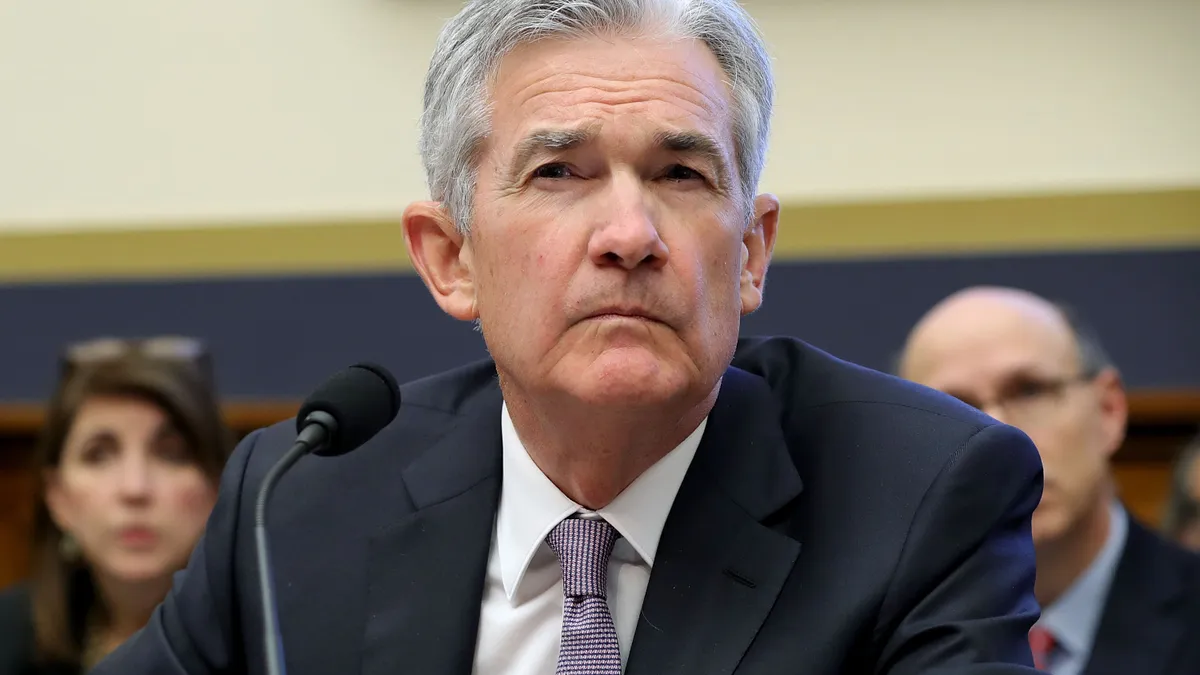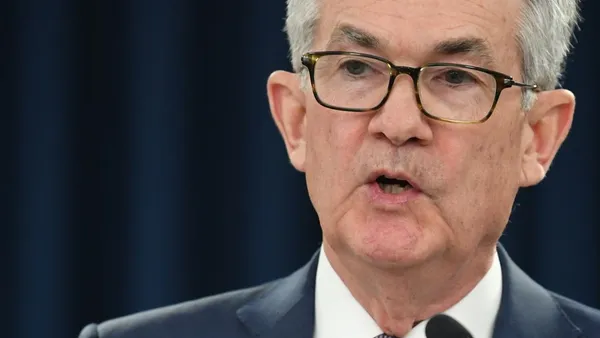Dive Brief:
- High inflation may compel the Federal Reserve to reduce economic stimulus by speeding up its planned tapering of bond purchases, central bank chair Jerome Powell said Tuesday during testimony to the Senate Banking Committee.
- “The threat of persistently higher inflation has grown,” Powell said, noting “a rapid improvement in many labor market indicators without an accompanying addition of labor supply and also strong spending that indicates growth — big, significant growth — in coming months.”
- Policymakers at their Dec. 14-15 meeting will probably discuss accelerating the wind-down of monthly asset purchases, now on track to end in June, Powell said. The Fed would do well to no longer refer to inflation as “transitory,” he said, adding that central bank economists had underestimated how supply-side constraints would spur price increases as the economy rebounded from a pandemic-induced lockdown and recession.
Dive Insight:
CFOs planning for 2022 confront the highest inflation rate in three decades as they try to balance increases in prices and employee wages without undercutting profits.
The consumer price index in October rose at a 6.2% annual rate, according to the Labor Department. The Fed’s preferred measure of price gains — the core personal consumption expenditures price index — rose 4.1% in October compared with the prior year. Both rates far exceed the central bank’s long-run 2% target.
The prices companies pay for wholesale goods are rising especially fast. The producer price index for final demand, a measure of what suppliers charge, soared 8.6% in October from the prior year, according to the Labor Department. That was a record jump in a series of data first published in 2010.
Recent price gains prompted “a significant change of tone from Powell” during his testimony, according to Fitch Ratings Chief Economist Brian Coulton. “The last [Federal Open Market Committee] minutes aired the need for flexibility to alter the pace of tapering, and it looks like the Fed wants to create some space to give them the option to raise rates well before the end of next year.”
The Fed at its December meeting will assess the likely impact of the omicron strain of COVID-19, Powell said, noting its potential to set back the recovery and complicate policy making.
The omicron variant may stoke inflation and slow economic growth by further disrupting supply chains and discouraging idle workers from returning to the labor force, Fitch and Moody’s Investors Service warned.
The emergence of the omicron variant “comes during a period of fragile economic recovery, with stretched supply chains, elevated inflation and labor market shortages,” Moody’s said Tuesday. “Business disruption resulting from the spread of the new variant could prevent supply chain stresses from easing, dampening productive capacity and stoking further cost pressures in sectors with exposure to global supply chains.”
The omicron variant may also make Powell’s job more difficult, Fitch said Monday.
“Another large, synchronized global downturn, such as that seen in 1H20, is highly unlikely but the rise in inflation will complicate macroeconomic responses if the new variant takes hold,” according to Fitch.
The omicron strain “could have an inflationary effect if new lockdowns or voluntary social distancing constrain labor supply recoveries or exacerbate global supply-chain shortages and bottlenecks,” Fitch said. “Hence, we believe central banks could be wary of delaying the normalization of monetary policy settings in response.”
Republicans on the banking committee urged Powell not to delay a withdrawal of accommodation.
“Inflation is a tax that’s eroding Americans’ paychecks every day,” Sen. Pat Toomey (Pa.), the panel’s senior Republican, told Powell, chiding him for not starting to taper bond purchases several months ago rather than at the start of November.
“Even though wages are growing, inflation is growing faster, and that is causing workers to fall further and further behind,” Toomey said.
The Fed will act if necessary to avert prolonged price gains, Powell said, predicting that inflation will persist through mid-2022.
“We will use our tools both to support the economy and a strong labor market, and to prevent higher inflation from becoming entrenched,” he said in prepared testimony.















